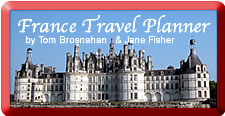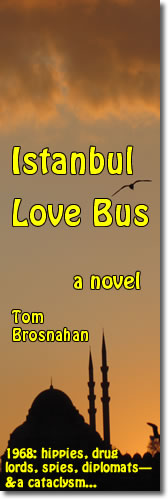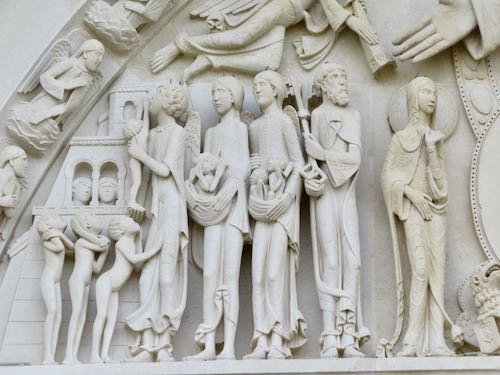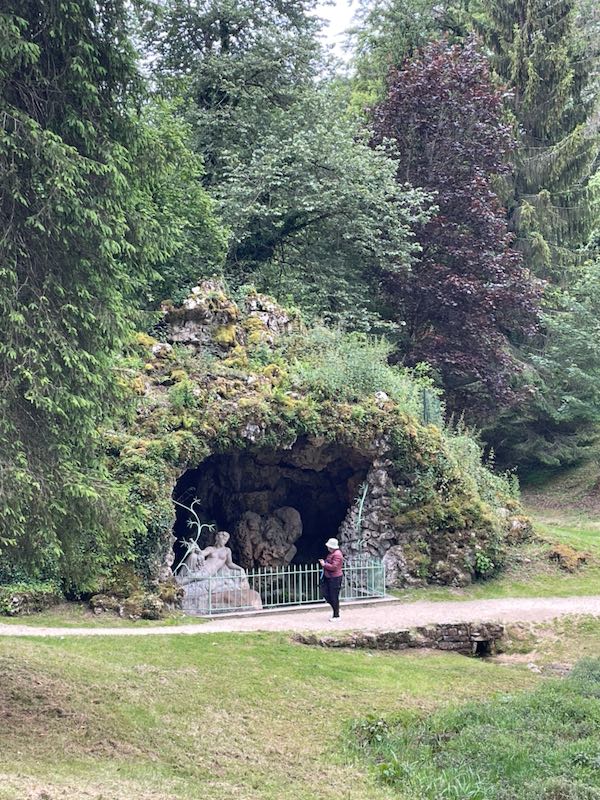 |
Top Traveler Mistakes in France | |
| Want to fit in? When in Rome, do as the Romans do. When in France, follow French customs and etiquette. | ||
|
` |
|
Here are the top mistakes and misapprehensions that travelers make on a trip to France: 1. France is Expensive!As an American, I'm always astonished at the high value-for-money for travel in France. A hotel that would cost $300 per night in the USA may cost half that in France. A good meal costs 20% to 50% less than in a large American city, and good wine in France costs a fraction of what it does in America. As for transportation, some costs are lower in France than in the USA, and some are higher, but the value-for-money is still there. The exception: highway tolls. They're much more expensive in France, but they reflect the real, total cost of building and maintaining highways, and they equalize the true cost of auto travel compared to the more ecological travel by train. 2. Not following French EtiquetteEtiquette is the glue that holds French society together and makes everyone feel that they belong. Greeting everyone with Bonjour, monsieur or Bonjour, madame, departing in the evening with a friendly Au revoir, or Bonne soirée!, saying S'il vous plaît after every request, and Pardon! after every mis-encounter—you're being a polite visitor, and your trip will be far smoother because of it. 3. Talking Too LoudIn a bus, restaurant, Métro train, on a street corner or at the theater, that person talking and laughing so everyone can hear every word of their private conversation is probably (though not always) an Anglophone (native Engliss-speaker). This may be accepted at home, especially in America where many gatherings take place in a hurricane of noise, but in France, social engagement is done at a volume at which everyone can hear their interlocutors, but no one else. A quiet background murmur in the room is normal, so if someone is speaking above the murmur, it's impolite. 4. I Need a CarIn some countries it makes sense to rent a car for your travel: in the USA, Canada, Australia, and other large countries with low population density, a private car may be the preferred means of transportation for most of your trip. In France, with high population density and an elaborate, highly-developed and efficient system of public transportation, a private car can be useful, but is rarely essential. Most French travelers take trains and buses for at least part of their trip. French train stations are mobbed the way US airports and highways are. A rental/hire car may be the best option for part of your trip, but don't assume so. Take a fresh look at travel possibilities in France. Look first at trains—particularly for long trips—before deciding on a long drive: Paris - Bordeaux by car: six hours, top speed 130 kph (81 mph); by train, two hours, top speed 300 kph (186 mph). We normally fly to France, take a train from the airport to our first destination, and then train, bus or rental/hire car for shorter explorations, as appropriate. 5. Carry Cash EurosCredit and debit cards are accepted virtually everywhere in France, as are smartphone payment systems such as Apple Pay and Google Pay, which are more secure than physical cards. We pay for 99% of what we buy in France—hotels, meals, transportation and event tickets, groceries, pastries, café drinks, gas, parking, even charges as small as 1€—by tapping our smartphones on payment terminals. More... It's good to have some euros for those unusual moments when they're the best way to pay, but most of the time, tapping our smartphones is quicker, easier and safer. 6. Reserve the Day BeforeFlights, train trips, museum and sight visits, special restaurant meals—things in France may not work as they do at home. I urge you to reserve as far in advance as possible—weeks, even months, if you can. France is the world's Number 1 travel destination! You're not just competing with 68 million French people, but also with three times as many tourists! That's nearly 300 million competitors for that seat on a plane or train, or in a restaurant, that entry time for a museum—and most major museums and sights now require timed-entry reservations, at least in the busiest times. Don't just show up at the Eiffel Tower expecting to walk in. You could wait in line for hours. Reserve as far in advance as you can. Planning saves both time and money. 7. Tip 15% to 20%As in most of Europe, tipping is not normal in France. The price you see on a restaurant menu or taxi rate table or other service is the price you pay. If your restaurant bill is 50€, you pay 50€, because service (ie, tip) and all taxes are included in that price. This really helps tourism, making payment quick, simple and transparent. Don't feel guilty. Forget tipping. More... 8. Phone Roaming is ExpensiveHorror stories abound of people traveling abroad and coming home to find huge roaming charges on their mobile phone bills. "Oh well, we just won't use our phones much," you think. But you will! Reservations, map guidance, news, email and messaging, weather reports: that little computer in your pocket is essential to travel these days. The good news is that you can do it all for as little as 10€ for three weeks. More... 9. Don't Drink the WaterBefore the late 20th century, this was good advice in many places. Tap water was for washing, not for drinking. But now most countries have purified water systems. Paris now promotes L'eau de Paris, Paris's municipal tap water, as the ecologically-smart alternative to water in single-use plastic bottles. The municipal water system encourages citizens and visitors to drink the healthful water from the tap rather than polluting the earth with ever more throw-away containers. Refill your water bottle at the tap and enjoy! 10. As Safe as HomeFrance is admirably safe, but as a traveler, you're less safe than a local. Pickpockets and other scammers, in particular, can tell you're not a local just by glancing at you. Your clothes and shoes, the way you walk or speak, the suitcase your carrying—they know, and they'll target you. Think it over: even if they're caught, you probably won't be around to pursue legal measures against them, so ripping you off is a no-brainer. Please read and observe our recommended safety measures.
|
|
Hotel Map with Prices:Booking.com is a FranceTravelPlanner.com partner.
|






